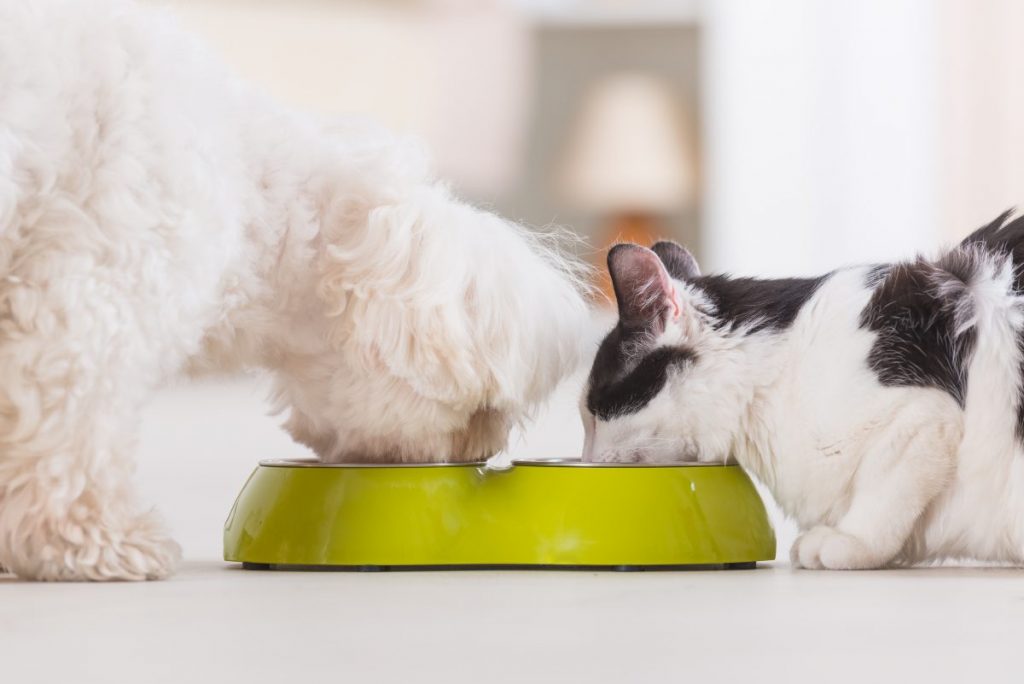The bond between dog and cat lovers and their furry, four-legged friends is so deep, nothing is off limits when it comes to sharing. But sharing the same ailments?
Over nine percent of the human population, 29.1 million people, have been diagnosed with diabetes, and while the percentage of pets with diabetes is smaller, this condition is still common among Fido and feline alike. About one in 100 dogs over the age of 12 develops diabetes, while anywhere between one in 50 to one in 500 cats develops the condition.
And although there is no current cure for dogs with diabetes, there are ways still to manage the illness. Aside from administering the proper dose of insulin, choosing the right diet can help your pet live a long, fulfilling life.
Diet Tips for Dogs with Diabetes
Once a dog has been diagnosed with diabetes, there is usually no turning back. Fortunately, the right food can help manage your dog’s health. One such diet is a meat-based diet, high in protein, that is moderate in fats and carbohydrates.
As carbohydrates normally carry high amounts of glucose, be sure to look for those with low glycemic levels (such as barley or sorghum) should you choose to include them in your pup’s meals. All portions considered, it is recommended that less than 30% of your dog’s calories come from fat and carbohydrates, while 30–40% should come from protein.
Although studies have shown that diets high in fiber may help dogs with diabetes by better controlling blood sugar post-meal, this has yet to be proven for the majority. Depending on the dog, a diet high in fiber can contribute to unintended weight loss, decreased appetite, and other digestive issues such as flatulence, diarrhea, or constipation. Overweight dogs may benefit from high fiber diets to aid in weight loss, but it’s best to consult your vet.
To manage sugar levels, give meals at fixed times each day, ideally timed with the insulin injection—for instance, within the hour after mealtime to help combat increased blood levels after eating. Furthermore, feeding the same food at each meal, with the same caloric level and ingredients, will help ensure the insulin works effectively.
Diet Tips for Cats with Diabetes
Good news, cat parents! With proper management of the illness, cats with diabetes have a much better chance of going into remission. In fact, it’s not uncommon for cats to go into remission by simply making some changes to diet and administering daily insulin injections.
If there’s anything to take away from this article, it would be this: abstain from feeding carbohydrates and dry food to your feline. Rather, opt for a diet heavy in protein, moderate in fat with low to no carbohydrates for the greatest chance at remission. In general, the recommended ratio is for 45% of your cat’s calories to come from protein, 25 to 30% from fat, and 10% or less from carbohydrates.
Feeding meals at fixed times each day will help control your cat’s sugar levels, ideally timed to their insulin—within one hour of each meal, for instance, to help fight the rise of blood sugar from the food. In addition, each meal should ideally offer the same amount of calories, and ingredients, for the insulin to work effectively each time.
Since cats can go into remission, it is advised that you monitor your feline’s blood glucose levels at home. Consult your vet for the best way to administer this quick and painless process.
Treats for Dogs & Cats with Diabetes
Just because your pet is held to a strict diet doesn’t mean he or she doesn’t deserve to be treated! But as with mealtime, giving treats should come with a regimen, too. Insulin peaks around 4–6 hours after each injection, so it is best to give treats around this time. Be wary of treats high in carbohydrates and sugars, opting instead for those high in protein or even fresh lean meats.
As with all good things, moderation is key. Less than 10% of your pet’s daily calories should come from treats.
Fear not, dog lovers and cat parents. As with any routine, managing diabetes with treatment and a proper diet may take some getting used to, but once you do, you’re sure to help prolong the quality of life—for you and your furry friend.






